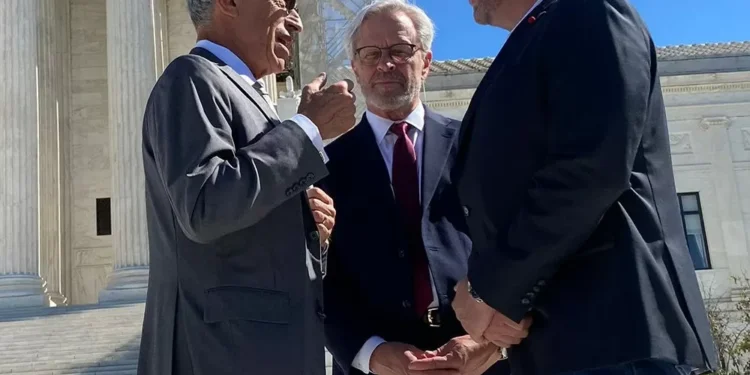The Supreme Court May Force Oklahoma to Kill Richard Glossip
The Supreme Court of the United States is facing a difficult decision in the case of Richard Glossip, a death row inmate in Oklahoma. At oral arguments, Justices Clarence Thomas and Samuel Alito appeared indifferent to the state Attorney General’s insistence that Glossip’s conviction is unconstitutional. This has raised concerns that the Court may rule in favor of the state, effectively forcing Oklahoma to carry out Glossip’s execution.
Richard Glossip has been on death row for over two decades, convicted of orchestrating the murder of his employer, Barry Van Treese, in 1997. However, Glossip maintains his innocence, and there is significant evidence to suggest that he was wrongfully convicted. The case against him relied heavily on the testimony of Justin Sneed, who admitted to committing the murder and claimed that Glossip had hired him to do so. However, Sneed was given a plea deal in exchange for his testimony, and there is no physical evidence linking Glossip to the crime.
Despite this, Glossip has faced multiple execution dates and has come within hours of being put to death on three occasions. However, each time, his execution has been stayed due to new evidence or legal challenges. This has only added to the stress and uncertainty that Glossip and his family have had to endure for over 20 years.
The latest challenge to Glossip’s conviction came in the form of a lethal injection protocol that was used in Oklahoma in 2015. The use of this protocol led to the botched execution of Clayton Lockett, who writhed in pain for 43 minutes before ultimately dying of a heart attack. This gruesome execution sparked a nationwide debate on the use of lethal injection as a method of execution.
In response to the controversy, the state of Oklahoma agreed to review and revise its execution protocols. However, the revised protocol still contains the same drugs and dosages that were used in Lockett’s execution. This has raised concerns about the potential for another botched execution and has led to challenges from death row inmates, including Richard Glossip.
Glossip’s legal team argues that the use of the same lethal injection protocol that led to Lockett’s botched execution violates the Eighth Amendment’s ban on cruel and unusual punishment. They argue that the state’s failure to make significant changes to the protocol shows a reckless disregard for human life and is a violation of Glossip’s constitutional rights.
At oral arguments, the state Attorney General attempted to defend the use of the protocol, arguing that it has been deemed constitutional by the Supreme Court in the past. However, Justices Thomas and Alito appeared unmoved by this argument, with Thomas even stating that he did not see how Glossip’s constitutional rights were violated.
This indifference from two of the Court’s most conservative justices is alarming, to say the least. It suggests that they may be willing to overlook significant flaws in the state’s case and allow an innocent man to be put to death. It also raises concerns about the integrity of the justice system and the potential for wrongful convictions to be upheld.
The Supreme Court’s decision in this case will have far-reaching consequences, not just for Richard Glossip, but for all death row inmates in Oklahoma and potentially across the country. If the Court rules in favor of the state, it will essentially be giving the green light for executions to continue using a potentially flawed and inhumane protocol.
It is up to the Supreme Court to ensure that justice is served in this case. They must carefully consider all the evidence and arguments presented and make a decision that upholds the principles of fairness and justice. The fate of Richard Glossip, and the integrity of the justice system, rests in their hands.
In the end, it is not just about Richard Glossip. It is about the fundamental values of our society and the responsibility of the justice system to ensure that innocent people are not wrongfully convicted and put to death. The Supreme Court must not turn a blind eye to the flaws in this case and must take a stand for justice and humanity. Anything less would be a grave injustice.






